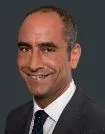I. INTRODUCTION
While not nearly as transformative and dramatic as the first half of 2013 and the early days of Chair Mary Jo White and Director of Enforcement Andrew Ceresney, the first six months of 2014 was just as busy and productive with major court victories and significant and novel enforcement actions. The SEC obtained a long-awaited and favorable decision from the United States Court of Appeals for the Second Circuit in the Citigroup case in which the SEC's "neither-admit-nor-deny" policy had been taken to task by Judge Rakoff in the Southern District of New York. The Commission secured admissions of wrongdoing from high-profile defendants in connection with five settlements. In addition, the Commission entered into its first non-prosecution agreement with an individual defendant and its first enforcement action for retaliation against a whistleblower. More controversially, the Commission continues to have mixed results at trial. Undeterred, the Enforcement Division has indicated that it intends to keep marching forward with its aggressive stance and keep bringing important cases in each of its priority areas. In May 2014, the Enforcement Division announced that SEC-veteran Stephanie Avakian would return as its new Deputy Director, no doubt to have more leaders focused on the implementation of Chair White's aggressive, all-encompassing enforcement agenda.
II. SELECTED ENFORCEMENT DIVISION INITIATIVES & DEVELOPMENTS
A. SEC v. Citigroup
On June 4, 2014, a unanimous panel of the Second Circuit Court of Appeals overturned US District Judge Jed Rakoff's controversial 2011 ruling, which had rejected a proposed settlement between the SEC and Citigroup Global Markets, Inc., primarily because Citigroup did not admit any of the alleged facts or liability.1
The SEC brought the underlying civil injunctive action against Citigroup alleging violations of the Securities Act of 1933 (the "Securities Act") with respect to Citigroup's structuring and marketing of a collateralized debt obligation ("CDO").2 Shortly thereafter, the parties proposed a settlement that included disgorgement, prejudgment interest, and penalties amounting to $285 million. Judge Rakoff declined to approve the settlement, stating that the proposal was "neither fair, nor reasonable, nor adequate, nor in the public interest," because, given that Citigroup neither admitted nor denied the allegations, the settlement did not provide an evidentiary basis for the court to know whether the relief was justified.3
The Second Circuit unanimously held that Judge Rakoff abused his discretion by failing to apply the correct legal standard and failing to accord the SEC's decision to enter into such a settlement the appropriate level of deference. According to the Second Circuit, district courts are not required to evaluate whether a proposed settlement affirmatively serves the public interest, as Judge Rakoff had done. As the panel wrote, "The job of determining whether the proposed [SEC] consent decree best serves the public interest...rests squarely with the [SEC], and its decision merits significant deference." District courts are only to evaluate whether the public interest would be disserved by a proposed consent decree. Of particular note, the Second Circuit held that it was an abuse of discretion to insist that the district court needed to know the "truth" of the allegations prior to approving the settlement. Similarly, the panel stated in no uncertain terms that "There is no basis in the law for [a] district court to require an admission of liability as a condition for approving a settlement between the parties."4
The Second Circuit's decision is a vindication of the SEC's long standing practice of entering into settlements without requiring that settling parties admit liability. Nevertheless, the policy implications of Judge Rakoff's 2011 decision will continue to reverberate for years to come. Indeed, as we have previously discussed, in the three years since Judge Rakoff's 2011 decision, the SEC has fundamentally changed its approach to settlements, including by demanding admissions in certain cases. Indeed, Ceresney, speaking at a DC Bar event shortly after the Second Circuit's decision, made clear that the SEC's new policy of seeking admissions in appropriate cases while also permitting certain defendants to settle on a neither-admit-nor-deny basis would continue.5
B. Admissions of Liability in Settled Cases
According to the SEC, through the first half of 2014, the Commission had settled eight cases where the defendant admitted liability, five of which were announced in the first half of 2014. The Commission notes that there are more settlements with admissions "in the pipeline."6 One can only hope that these upcoming settlements will shed more light on the factors that the Commission considers when deciding which cases merit admission of liability because so far there does not appear to be a clearly recognizable policy governing such decisions.
In January 2014, the SEC filed settled administrative proceedings against Scottrade, a privately-owned discount retail brokerage firm headquartered in Missouri.7 Scottrade was charged with failing to provide the SEC with complete and accurate "blue sheet" data concerning trades executed by Scottrade and its customers, in violation of Section 17(a) of the Securities Exchange Act of 1934 (the "Exchange Act") and Rules 17a-4(j), 17a-25, and 17a- 4(f)(3)(v) promulgated thereunder.8 Scottrade settled the SEC's charges by admitting to inadvertently providing the SEC with inaccurate and incomplete trading data on 1,231 occasions between 2006 and 2012 and paying a civil penalty of $2.5 million. According to the SEC's order, Scottrade has since resolved the deficient computer code responsible for the inaccurate and incomplete reporting.9
In February 2014, the SEC filed settled administrative proceedings against a major financial institution. The SEC charged the institution with violations of Section 15(a) of the Exchange Act and Section 203(a) of the Investment Advisers Act of 1940 because it provided brokerage and investment advisory services to US clients, both in person and through e-mails and phone calls, without registering with the SEC.10 According to the SEC's order, the institution sent relationship managers from Europe to the United States on a number of occasions over several years to provide investment advice to thousands of existing and prospective clients.11 In connection with the settlement, the institution admitted to the alleged facts and acknowledged that its conduct violated the federal securities laws, agreed to pay a fine of $196 million, and agreed to the issuance of a cease and desist order imposing remedial undertakings.12
On March 13, 2014, the SEC filed settled administrative proceedings against Lions Gate Entertainment Corp. ("Lions Gate") alleging that Lions Gate misled investors about the nature of a set of transactions designed to thwart a hostile takeover bid.13 Lions Gate agreed to the imposition of a cease and desist order and a civil penalty of $7.5 million, and admitted to violating Sections 13(a) and 14(d) of the Exchange Act and Rules 12b-20, 13a-11, and 14d-9 promulgated thereunder.14 More specifically, Lions Gate admitted that it had falsely characterized a particular series of transactions in its public disclosures in an effort to reduce the company's debt when in fact the transactions were devised to enlist a management friendly director, who would vote against a takeover bid.
In a rare case of an admission by an individual defendant, the SEC, on March 20, 2014, settled its long-standing case against Michael French, former attorney for Samuel and Charles Wyly (who, as discussed below, were French's co-defendants and who subsequently lost at trial against the SEC).15 The SEC sued French, the Wyly brothers, and other defendants for their alleged roles in a $550 million scheme to conceal stock sales in companies in which the Wylys had an interest.16 French agreed to disgorge $400,000 and pay prejudgment interest in the amount of $394,608, admitted to assisting the Wylys in setting up and managing offshore trusts in the 1990s that were used to hide assets, and admitted to participating in hiding those trusts from US authorities.17 Significantly, French also agreed to cooperate with the SEC in its pending trial against the Wyly brothers, which he did. Thus, this settlement can be viewed as an example of part of the Commission's new admission program and as part of the SEC's cooperation program. As discussed further below, "flipping" French and obtaining admissions from him was a significant success for the SEC, and no doubt contributed to the Commission's subsequent trial win.
Finally, on April 2, 2014, the SEC secured what it has characterized as admissions from two Brazilian brothers who the SEC accused of insider trading in SEC v. Certain Unknown Traders in the Securities of H.J. Heinz Co. In late 2013, the SEC filed proposed consent judgments in the United States District Court for the Southern District of New York in an insider trading case pending before Judge Rakoff. Judge Rakoff refused to sign off on the settlement because the proposed orders contained the neither-admit-nor-deny language.18 The parties refiled the proposed judgments a few weeks later with a new clause to clarify that the removal of the neither-admit-nor-deny language from the orders should not be construed as an admission. Again, Judge Rakoff refused to sign off on the proposed orders and instead gave the parties three options: (i) removing the new clause from the revised proposed consent judgments; (ii) having the settling parties admit to the allegations for the limited purpose of the proceedings at hand; or (iii) having an evidentiary hearing.19 Ultimately, on April 2, 2014, after the SEC submitted evidence purportedly supporting its claims, Judge Rakoff signed off on the settlement without the neither-admit-nor-deny language.20 Presumably, after the SEC's appellate victory in the Citigroup appeal, such a situation is unlikely to be repeated.
As we previously highlighted, the Enforcement Division staff has provided little, if any, meaningful guidance as to when it will insist that a settling party admit to the government's factual allegations. And the five cases in which admissions were sought (and received) so far this year do not provide any further insights as to why those cases were singled out for special treatment. With respect to the Scottrade settlement, the SEC's public comments appear to suggest that an admission of wrongdoing was warranted because the inadvertent error was long running, egregious (even though there was no scienter), and impacted data reporting over several years. Such systemic lapses affecting a key function of the SEC (data collection and reporting) apparently merited the stiffest of penalty and resolution the SEC has in its arsenal. As for the Lions Gate settlement, public comments suggest an admission was required mostly in an effort to send a signal to the markets. For example, in March 2014, Ceresney explained that "Lions Gate withheld material information just as its shareholders were faced with a critical decision about the future of the company. Full and fair disclosure is crucial in tender offers given that shareholders rely heavily on corporate insiders to make informed decisions, especially in the midst of tender offer battles." A few months later, he stated that the admissions sent "an important message to the market about the perils of misleading investors in the midst of a tender offer battle."21 And with respect to the settlement with the European financial institution, SEC statements suggest an admission was required due to the fact the misconduct occurred over several years and repeatedly, and also because an admission would signal to market participants the failure to identify material weaknesses in internal controls will not be tolerated (something, of course, the SEC has signaled before).22
In any event, with or without such guidance, the SEC will clearly continue to seek admissions from certain defendants in future cases. Indeed, Ceresney recently explained that, once the Enforcement Division has determined that a given case is appropriate for the new admissions policy, that decision is non-negotiable.23 In other words, the SEC will not agree to forego an admission in lieu of additional monetary penalties or remedial measures. We expect to see this policy develop in the coming months, and we will continue to monitor how the Commission administers its policy of seeking admissions of liability in the appropriate cases.
C. SEC Enters into First Individual Non-Prosecution Agreement
The Enforcement Division has a relatively recent program (launched in 2010) that over the last few years has developed and implemented a series of measures designed to encourage greater cooperation by individuals and companies in SEC investigations and enforcement actions.24 When the program was announced, Robert Khuzami (then Director of the Enforcement Division) stated that, "There is no substitute for the insiders' view into fraud and misconduct that only cooperating witnesses can provide. That type of evidence can expand our ability to conduct our investigations more swiftly, and to act quickly to file charges, freeze assets, and protect investors."25 As part of this program, the SEC has entered into a number of cooperation agreements, deferred prosecution agreements, and non-prosecution agreements.
On April 25, 2014, the SEC announced its first non-prosecution agreement with an individual, a further step in the Enforcement Division's development of the cooperation program it first announced in January 2010. Like the SEC's November 2013 announcement of its first deferred prosecution agreement with an individual (Scott Herckis), this is another signal that the SEC is pushing hard, in the pre-litigation phase of its investigations, to encourage cooperation.26 In both cases, the SEC lauded the individual's early and exemplary cooperation as the basis for entering into the agreement. But unlike the 2013 announcement, in this case the SEC did not disclose the individual's name or any further details about the agreement itself. The SEC reported only that the individual "provided early, extraordinary, and unconditional cooperation" in connection with the Saridakis insider trading case, which is discussed in greater detail below.27 Unlike Scott Herckis, this individual apparently was not required to admit to any facts or wrongdoing. Indeed, it is somewhat unclear how this non-prosecution agreement differs from a simple declination. However, because the related Saridakis investigation is ongoing and could result in further litigation, we may learn more if the individual is called upon for further cooperation in a public setting.
To read this Review in full, please click here.
Footnotes
1 SEC v. Citigroup Global Mkts., Inc., Nos. 11–5227–cv (L), 11–5375–cv(con), 11–5242–cv(xap.), 2014 WL 2486793 (2d Cir. June 4, 2014).
2 Id. at *1.
3 SEC v. Citigroup Global Mkts., Inc., 827 F. Supp. 2d 328, 332 (S.D.N.Y. 2011).
4 SEC v. Citigroup Global Mkts., Inc., 2014 WL 2486793, at *6.
5 Andrew Ceresney, Director of the Div. of Enforcement, SEC, Address at The SEC Speaks to the D.C. Bar, Part I (June 11, 2014).
6 Andrew Ceresney, Director of the Div. of Enforcement, SEC, Keynote Address at Compliance Week 2014 (May 20, 2014). SEC Press Release, SEC Charges Lions Gate With Disclosure Failures While Preventing Hostile Takeover, Rel. No. 2014-51 (March 13, 2014); SEC Press Release, Credit Suisse Agrees to Pay $196 Million and Admits Wrongdoing in Providing Unregistered Services to US Clients, Rel. No. 2014-39 (Feb. 21, 2014); SEC Press Release, Scottrade Agrees to Pay $2.5 Million and Admits Providing Flawed "Blue Sheet" Trading Data, Rel. No. 2014-17 (Jan. 29, 2014); In the Matter of G-Trade Services LLC, Admin. Proc. File No. 3-15654 (Dec. 18, 2013); In the Matter of JPMorgan Chase & Co., Admin Proc. File No. 3-15507 (Sept. 19, 2013) (order instituting cease-and-desist proceedings); SEC v. Philip A. Falcone, No. 12-cv-5027 (S.D.N.Y. Sept. 16, 2013) (final consent judgment); SEC v. Harbinger Capital Partners LLC, No. 12-cv-5028 (S.D.N.Y. Sept. 16, 2013) (final consent judgment); In the Matter of North East Capital, LLC, Admin. Proc. File No. 3-15429 (Aug. 16, 2013) (order instituting administrative cease-and-desist proceedings).
7 SEC Press Release, Scottrade Agrees to Pay $2.5 Million and Admits Providing Flawed "Blue Sheet" Trading Data, Rel. No. 2014-17 (Jan. 29, 2014).
8 Id.
9 Id.
10 SEC Press Release, Credit Suisse Agrees to Pay $196 Million and Admits Wrongdoing in Providing Unregistered Services to US Clients, Rel. No. 2014-39 (Feb. 21, 2014).
11 Id.
12 SEC Press Release, Credit Suisse Agrees to Pay $196 Million and Admits Wrongdoing in Providing Unregistered Services to US Clients, Rel. No. 2014-39 (Feb. 21, 2014). See also SEC Press Release, SEC Charges Rafferty Capital Markets With Illegally Facilitating Trades for Unregistered Firm, Rel. No. 2014-97 (May 15, 2014) (charging New York-based Rafferty Capital Markets with, allegedly, facilitating trades for another firm that was not registered as a broker-dealer as required under the federal securities laws).
13 SEC Press Release, SEC Charges Lions Gate With Disclosure Failures While Preventing Hostile Takeover, Rel. No. 2014-51 (Mar. 13, 2014).
14 Id.
15 Settlement Agreement, SEC v. Wyly, No. 1:10-cv-5760 (S.D.N.Y. Mar. 20, 2014).
16 Andrew Scurria, Wyly brothers' ex-lawyer settles SEC fraud case, admits errors, Reuters, Mar. 20, 2014, available at http://www.law360.com/articles/517171/wyly-atty-close-to-exiting-550m-sec-fraud-case.
17 Settlement Agreement, SEC v. Wyly, No. 1:10-cv-5760 (S.D.N.Y. Mar. 20, 2014).
18 SEC v. Citigroup Global Mkts., Inc., 827 F. Supp. 2d 328, 335 (S.D.N.Y. 2011).
19 SEC v. Michel Terpins and Rodrigo Terpins, 1:13-cv-01080-JSR, Dkt. No. 37, at 4-5.
20 SEC v. Michel Terpins and Rodrigo Terpins, 1:13-cv-01080-JSR, Dkt. No. 40.
21 Andrew Ceresney, Director of the Div. of Enforcement, SEC, Keynote Address at Compliance Week 2014 (May 20, 2014).
22 See, e.g., In the Matter of JP Morgan Chase & Co., Admin. Proc. File No. 3-15507 (Sept. 19, 2013) (order instituting cease-and-desist proceedings).
23 Andrew Ceresney, Director of the Div. of Enforcement, SEC, Address at The SEC Speaks to the D.C. Bar, Part I (June 11, 2014).
24 SEC Press Release No. 2010-6, "SEC Announces Initiative to Encourage Individuals and Companies to Cooperate and Assist in Investigations," Jan. 13. 2010.
25 Id.
26 See generally Mary Jo White, Chair, SEC, Speech at Stanford University Rock Center for Corporate Governance (June 23, 2014) (describing how companies can cooperate with SEC investigations).
27 SEC Press Release, SEC Charges Six Individuals With Insider Trading in Stock of E-Commerce Company Prior to Acquisition by eBay, Rel. No. 2014-85 (Apr. 25, 2014).
The content of this article is intended to provide a general guide to the subject matter. Specialist advice should be sought about your specific circumstances.














